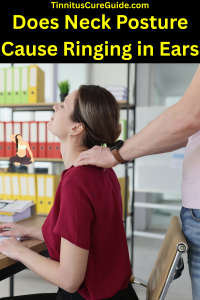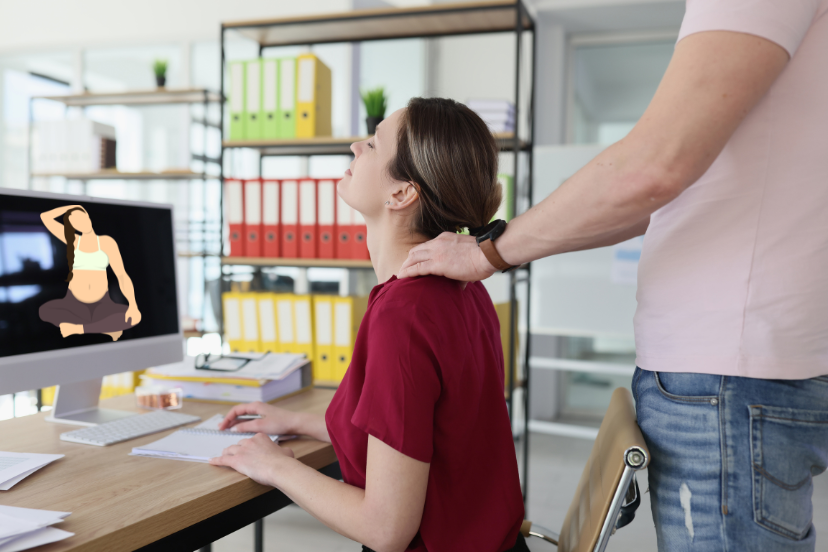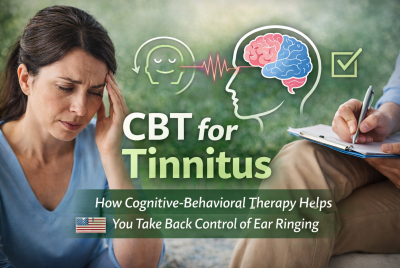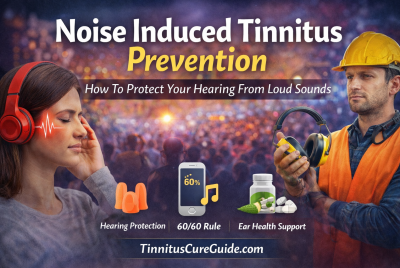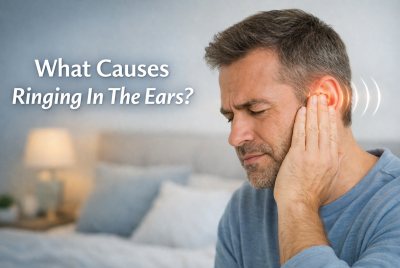Does Neck Posture Cause Ringing in Ears? Understanding the Connection
⭐ Does Neck Posture Cause Ringing In Ears? (Quick Answer)
Yes — poor neck posture can contribute to ringing in the ears, especially a type known as somatic tinnitus.
Forward head posture, rounded shoulders, and chronic neck tension can strain muscles and nerves that share pathways with the auditory system. This strain may increase tinnitus awareness or change its intensity, particularly when neck position or movement affects the sound.
Improving posture, reducing neck muscle tension, and addressing cervical spine issues often helps reduce posture-related tinnitus in many people.
🔊 Why Ear Ringing Feels Worse With Neck Strain
Do you notice your ear ringing, buzzing, or whooshing sounds get worse after sitting at your desk, looking at your phone, or sleeping in a bad position? Many tinnitus sufferers report that their symptoms intensify with neck stiffness or poor posture. This raises an important question: Does neck posture cause ringing in ears?
While not the only factor, posture can play a surprising role in tinnitus. Understanding the connection between your cervical spine, blood flow, and inner ear function may reveal new strategies for relief. Let’s explore how posture affects tinnitus, natural remedies, and prevention tips to manage symptoms effectively.
🔍 What Is Cervical Tinnitus?
Cervical tinnitus refers to ear ringing that’s linked to neck movement, posture, or cervical spine issues. Unlike tinnitus caused by loud noise or hearing loss, cervical tinnitus often worsens when you tilt, stretch, or strain your neck.
Common Triggers of Cervical Tinnitus
-
Forward head posture from long hours at the computer or phone use
-
Tight neck muscles from stress or poor sleep position
-
Cervical spine problems, such as arthritis or herniated discs
-
Restricted blood flow to the inner ear due to neck compression
In short, posture may not directly “cause” tinnitus, but it can exacerbate existing ringing in ears or make symptoms more noticeable.
🌟 Does Neck Posture Cause Ringing in Ears? The Science
Poor posture, especially forward head posture, places strain on the neck and upper back. This can lead to:
-
Muscle tension and nerve compression – Tight muscles in the neck and jaw can irritate nerves connected to the auditory system.
-
Reduced blood circulation – Poor posture may affect blood flow to the inner ear, increasing whooshing or pulsatile tinnitus.
-
Increased stress levels – Neck strain often leads to headaches and anxiety, both of which heighten tinnitus awareness.
A 2018 study in the Journal of Audiology & Otology found that patients with cervical spine dysfunction were more likely to report chronic tinnitus. This suggests that posture plays a significant role in tinnitus severity.
⚙️ Symptoms That Link Neck Posture and Tinnitus
If you suspect posture is affecting your ear ringing, look for these patterns:
-
Ringing or buzzing worsens when turning or tilting your head
-
Symptoms increase after sitting at a desk or driving long hours
-
Tinnitus feels more intense during stress or neck tension
-
Ear ringing improves after stretching, massage, or posture correction
If these apply, your tinnitus may be partly cervicogenic, meaning related to neck posture and spinal alignment.
🌿 Natural Remedies for Posture-Related Ear Ringing
1. Posture Correction Exercises
Improving alignment reduces tension and may lower tinnitus intensity.
-
Chin tucks: Strengthen deep neck muscles.
-
Shoulder blade squeezes: Improve upper back posture.
-
Wall angels: Open chest muscles and reduce hunching.
2. Stretching and Mobility Routines
Gentle stretches relieve neck tightness.
-
Side neck stretches
-
Upper trapezius release
3. Heat and Massage Therapy
-
Warm compresses relax tight muscles.
-
Professional massage or trigger point therapy may ease tinnitus linked to neck strain.
4. Stress Reduction Techniques
Since stress worsens both posture and tinnitus:
-
Practice yoga, Pilates, or meditation
-
Use deep breathing exercises
-
Try progressive muscle relaxation before bed
🧘♀️ Lifestyle Adjustments to Support Better Posture
-
Ergonomic workspace: Keep your screen at eye level, use a supportive chair, and avoid slouching.
-
Frequent breaks: Stand up and stretch every 30–45 minutes.
-
Proper sleep position: Avoid high pillows that bend the neck unnaturally. Side sleeping with neck support works best.
-
Limit phone scrolling: “Tech neck” from looking down at your phone is a major posture culprit.
🏥 Medical and Professional Treatment Options
If home remedies don’t provide enough relief, professional treatments may help:
-
Physical therapy: Custom exercises to improve neck mobility and posture.
-
Chiropractic adjustments: For cervical spine misalignments that contribute to tinnitus.
-
Tinnitus retraining therapy (TRT): Combines sound therapy with counseling.
-
Hearing aids with masking features: Modern U.S. devices reduce constant ear ringing and improve hearing.
🎧 Prevention Tips for Avoiding Posture-Related Tinnitus
-
Keep shoulders relaxed, not hunched.
-
Balance screen time with movement.
-
Stay hydrated to prevent muscle stiffness.
-
Incorporate daily stretching for the neck and upper back.
-
Manage blood pressure and circulation with regular exercise.
Small, consistent habits can make a big difference in reducing posture-related tinnitus.
🧑 Coping Strategies for Daily Life
Living with constant ear ringing can feel overwhelming, but practical strategies can make it easier:
-
Use sound masking devices or white noise for tinnitus at night.
-
Try cognitive behavioral therapy (CBT) to reduce emotional distress.
-
Stay active—walking, swimming, and yoga improve circulation.
-
Join support communities such as the American Tinnitus Association.
❓ FAQs: Does Neck Posture Cause Ringing in Ears?
Can poor posture really make tinnitus worse?
Yes. Poor neck posture creates muscle tension and circulation problems that may irritate auditory nerves and worsen tinnitus. Many people notice ringing, buzzing, or whooshing sounds becoming louder after slouching, hunching, or spending long hours at a desk.
Will fixing my posture cure tinnitus?
Improving posture doesn’t guarantee a cure, since tinnitus often has multiple causes, but it can reduce symptoms significantly. Strengthening neck and back muscles, stretching daily, and improving ergonomics often lessen ear ringing triggered by cervical tension and poor alignment.
What’s the best exercise for posture-related tinnitus?
Chin tucks and shoulder blade squeezes are highly effective. They strengthen deep neck stabilizers, open tight chest muscles, and relieve strain that worsens tinnitus. Practicing them daily helps improve spinal alignment, circulation, and ear-related nerve function naturally over time.
Can sleeping positions cause ear ringing?
Yes. Sleeping with your neck twisted, bent, or unsupported may increase pressure on nerves and muscles linked to tinnitus. Using an orthopedic pillow, sleeping on your back, or maintaining a neutral spine position helps minimize posture-related ear ringing.
Should I see a doctor for posture-related tinnitus?
Yes. If tinnitus is severe, sudden, or worsening, seek medical advice. An ENT or audiologist can rule out hearing loss, while physical therapists or chiropractors may address cervical posture issues contributing to ear ringing and discomfort.
🏁 Conclusion: Take Control of Your Neck and Ear Health
So, does neck posture cause ringing in ears? While it may not directly cause tinnitus, poor posture and cervical strain can intensify symptoms and make them harder to manage. By improving alignment, reducing stress, and practicing healthy lifestyle habits, many people find meaningful relief.
If ear ringing is persistent, sudden, or worsening, consult a healthcare professional. Combining natural posture remedies with medical support may help you reclaim peace and quiet.
⚕️ Disclaimer
This article is for informational purposes only and should not replace medical advice. Always consult a qualified healthcare provider before starting new treatments for tinnitus or posture-related conditions.

